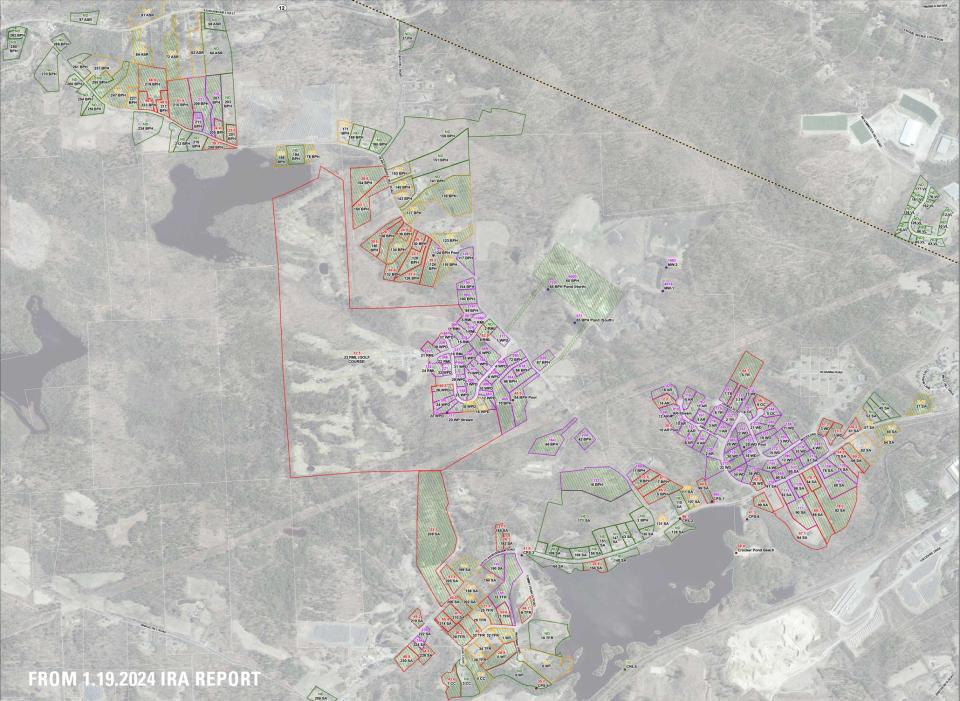What's the latest with Westminster's contaminated well problem?
Editor's Note: This article was initially published with several factual errors made by the reporter. The errors have been corrected here, and an updated article will be published shortly.
It's been exactly two years since the discovery of the forever chemical PFAS6 leaking into private drinking water wells from the raw compost material in the Massachusetts Natural Fertilizer facility at 65 Bean Porridge Hill Road in Westminster. The number of properties in the study areas has grown to nearly 300 private wells. A West Fitchburg neighborhood has also been tested as a result of the contamination, but the chemical has been undetectable there.
Since the discovery of the contamination, and under the supervision of the state Department of Environmental Protection, Lessard Environmental Inc., an environmental consulting firm, and Lawson & Weitzen LLP, a law firm, have worked together to remediate the growing contaminated area.

Both Lessard and Lawson & Weitzen continue to execute the Immediate Response Action Plan created two years ago. All well owners affected by the contamination still have free access to bottled water services. Testing of already identified contaminated wells is done every three months, along with precautionary sampling of potentially contaminated private wells.
Here is what's new with the ongoing Westminster PFAS issue.
West Fitchburg neighborhood remains unaffected
Private wells at 21 of 26 addresses on Victoria Lane, a West Fitchburg neighborhood, were sampled. One property tested positive for PFAS6 concentration in 2022, and has since had a POET system installed, which removes chemicals from the water. Since then, the PFAS chemical has been undetectable at that home, and in all other homes in the neighborhood.
Consistent monitoring of the PFAS study area at the Massachusetts Natural Fertilizer facility, which is the investigation site, results in data on the flow pattern of the concentration plume.
Public water connections
Lessard Environmental determined there were space limitations at three South Ashburnham Road properties in Westminster. As a result, they could not install POET systems at those homes.
MassDEP requested those properties be connected to the Westminster municipal water system. Since last December, those three properties have been connected to the municipal water system.
DEP has requested that a dozen additional homes adjacent to the municipal water system be connected. A water line extension is under discussion between DEP, the town and the Potentially Responsible Party (PRP – in this case, Mass. Natural Fertilizer).
Are stockpiles finally covered?
The Immediate Response Action Plan modification was submitted last year to cover stockpiles of raw organic compost material properly at the Massachusetts Natural Fertilizer facility, and Lessard is still awaiting approval from MassDEP to cover the stockpiles.
The uncovered stockpiles continue to leak PFAS concentration into the soil and surface water that flows into neighboring wetlands and private properties. Lessard Environmental President Larry Lessard said they have sampled several stockpiles of raw organic material, and 11 of the piles have a high level of PFAS concentration. He said due to limited resources, when they get approval from MassDEP to cover the piles properly, those 11 piles are the ones being covered.
Well drilling now permitted
On Jan. 17, the Westminster Board of Health lifted the well moratorium placed in August 2022 that prevented any well drilling in the PFAS-contaminated study area.
The board also approved new conditions for any future well drilling applications within the PFAS-contaminated area. An applicant is subjected to a 20-day comment period since the contaminated area is a Public Involvement Plan site administered by MassDEP. The applicant must submit a Release Abatement Measure Plan done by a Licensed Site Professional and pre-approved by MassDEP before the Board of Health reviews it.
The applicant must also attach a recorded Deed Notice that says they will be responsible for all costs related to the well. These costs include but are not limited to the treatment of any PFAS contamination and the proper disposal of any and all contaminated substances from the well.
This article originally appeared on Gardner News: An update to Westminster PFAS contamination problem

